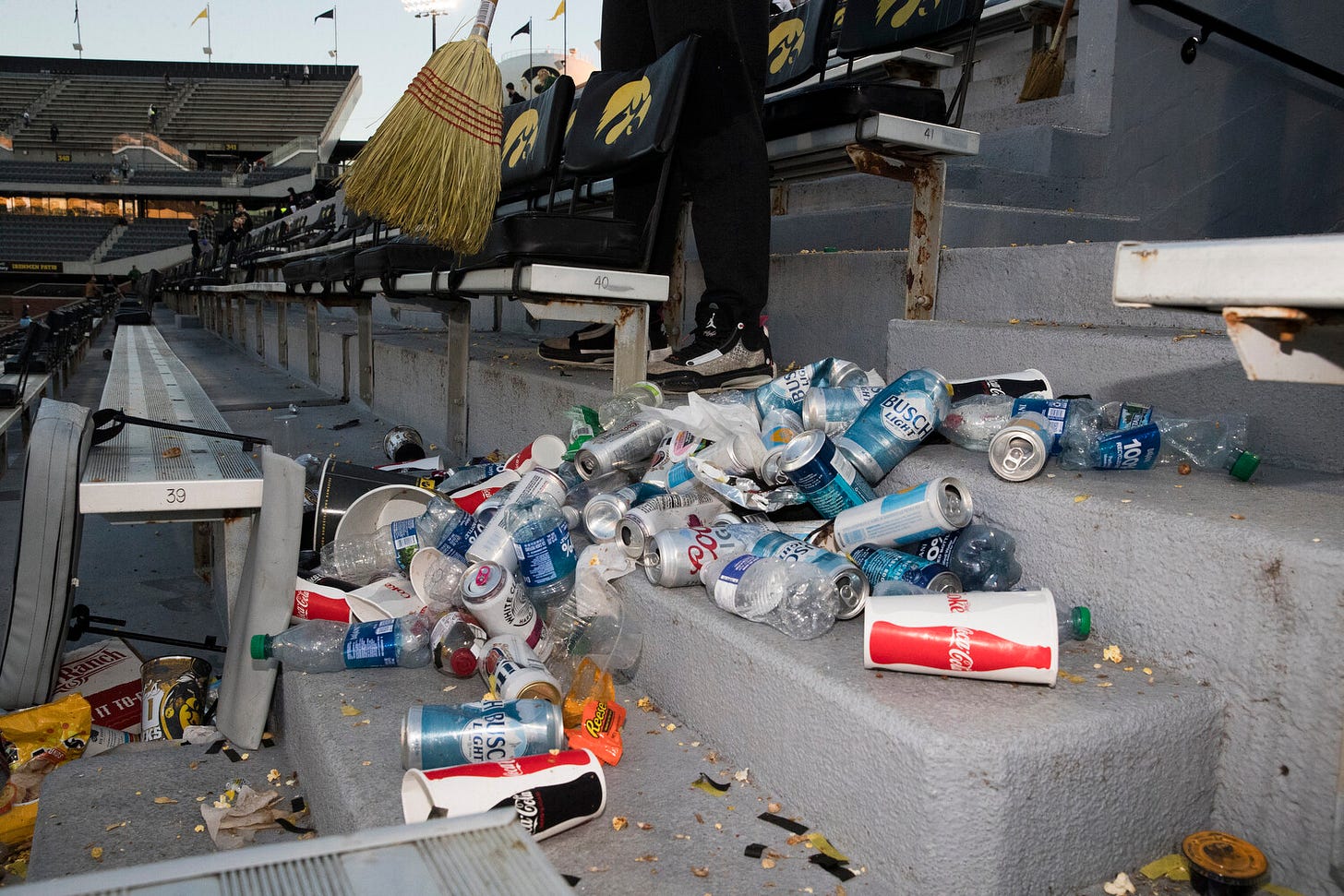What is the Environmental Impact of Football?
Assessing the environmental impact of football post Euro Cup and Copa America
As the world celebrates the recent excitement of the Euro Cup and Copa America, it's an opportune moment to reflect on the environmental impact of football (also known as soccer). The global football industry produces more than 30 million tonnes of carbon dioxide annually, equivalent to Denmark's total emissions1. With growing awareness of the climate crisis, the shift towards sustainability in football is gaining momentum. This newsletter explores how innovative solutions are transforming the sport and fostering environmental stewardship.
Carbon Footprint of Football
One of the most significant environmental challenges for large-scale sporting events is their carbon footprint. A study of 100 Premier League games revealed 81 domestic flights taken by teams within just two months, highlighting the extensive use of air travel for very short distances2. The reliance on air travel for teams and fans at international tournaments such as the Copa America and Euro Cup further exacerbates this carbon footprint.
In response to these concerns, both CONMEBOL (the governing body for South American football) and UEFA (the governing body for European football) took steps to mitigate this impact. UEFA, for example, promoted the use of public transport and electric vehicles to reduce the Euro Cup's carbon footprint3 and has also committed to halving its emissions by 2030 and achieving net zero by 20404.
Waste Management
Research conducted by Rising Ballers, a UK-based football digital media agency and platform, found that 72% of Gen Z football fans care about the environment, with 61% believing football should be more eco-friendly. The findings also showed that 40.2% of young football fans suspect waste production contributes to football’s high carbon footprint the most (32.5% transport, 18.1% stadiums, 9.2% food and drink).

In response, effective waste management was also a critical component of the sustainability strategies for Copa America and the Euro Cup 2024. Both tournaments implemented recycling and composting programs to minimize the amount of waste sent to landfills. UEFA, in particular, introduced Circular Economy Guidelines last year5 and partnered with Heineken, Just Eat Takeaway.com, and PepsiCo to minimize the amount of food and plastic waste at the games.
Sustainable Stadiums
In preparation for these two football tournaments, the construction and renovation of stadiums was also carried out with sustainability considerations in mind. Notably, the Copa America featured seven stadiums powered by solar energy,6 including the Mercedes-Benz Stadium in Atlanta and Levi's Stadium in Santa Clara. In Europe, UEFA set stringent sustainability standards for all host venues, focusing on energy efficiency and water conservation.
Conclusion
Reflecting on the recently concluded Copa America and Euro Cup 2024, it is evident that football has a negative environmental impact particularly in terms of carbon footprint and waste production. However, CONMEBOL and UEFA have taken commendable steps, such as promoting public transport, implementing waste management programs, and committing to significant emission reductions.
While these efforts are positive, the journey towards sustainability in football requires ongoing innovation and collective action from all stakeholders, including fans. Only through continuous effort can the sport contribute to a more sustainable future. Let's celebrate this progress and look forward to a greener, more sustainable future for football and the planet.
This Week in Sustainability is a weekly(ish) email from Brightest (and friends) about sustainability and climate strategy. If you’ve enjoyed this piece, please consider forwarding it to a friend or teammate. If you’re reading it for the first time, we hope you enjoyed it enough to consider subscribing. If we can be helpful to you or your organization’s sustainability journey, please be in touch.
https://earth.org/the-carbon-footprint-of-football/
https://www.bbc.com/sport/football/65017565
https://www.linkedin.com/pulse/copa-america-eurocup-2024-regional-competitions-leading-way-krrce/
https://editorial.uefa.com/resources/0270-13f888ffa3e5-931c597968cb-1000/uefa_football_sustainability_strategy.pdf
https://www.uefa.com/sustainability/environment/circular-economy/
https://www.conmebol.com/







